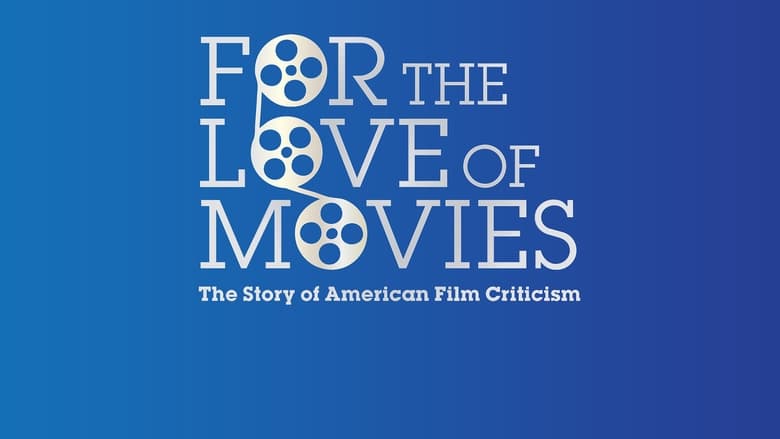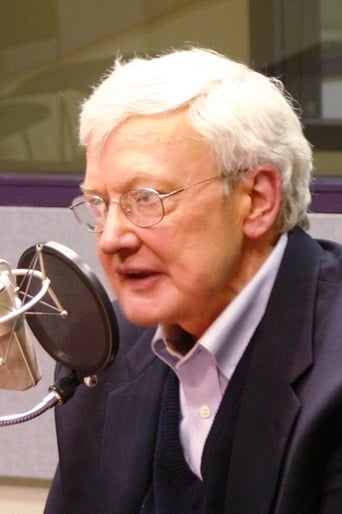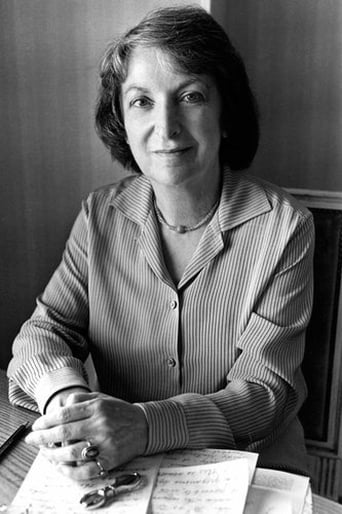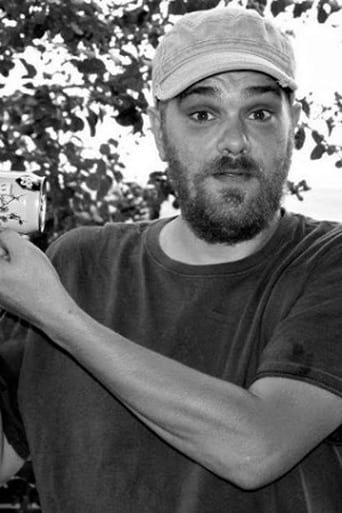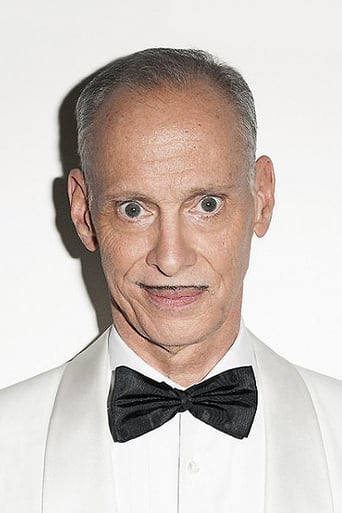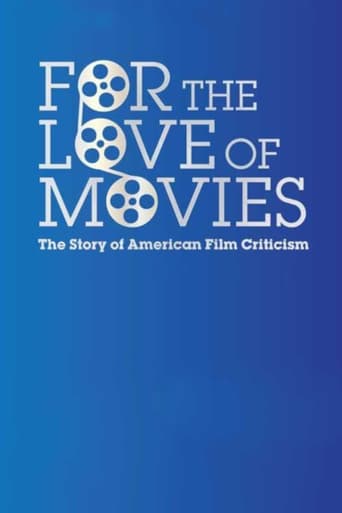
For the Love of Movies: The Story of American Film Criticism
March. 01,2009The story of American film criticism.
Reviews
To me, this movie is perfection.
Strong and Moving!
It's easily one of the freshest, sharpest and most enjoyable films of this year.
Like the great film, it's made with a great deal of visible affection both in front of and behind the camera.
For the Love of Movies: The Story of American Film Criticism (2009) *** (out of 4) Somewhat uneven but entertaining documentary taking a look at film critics from the past to the present. The documentary from director Gerald Perry actually features plenty of interviews with actual critics, which is a major plus as they get to comment on various subjects including the history of film criticism, how they got into doing it, their relationship with studios and directors and there's even some nice talk about the theory that everyone is a critic. As someone who loves movies, loves writing about movies and loves reading other's opinions on movies, this documentary kept me entertained from start to finish. I really liked the knowledge of how film criticism first started back around 1907 and it was fascinating to learn about the few critics who were out there at the time. It was also fascinating being able to see how the profession has changed throughout time and during which eras were critics most important when it came to people listening to them. The likes of Pauline Kael and Andrew Sarris are discussed as well as what Gene Siskel and Roger Ebert brought to the table. Other critics like Rex Reed, Owen Gleiberman, Elvis Mitchell, Janet Maslin and even Harry Knowles are interviews as well. FOR THE LOVE OF MOVIES certainly has some faults including how it jumps around on its subjects too much. I'm not sure if this was originally much longer and then edited down but it just seems like several subjects are brought up and not fully discussed. Either way, if you're a fan of film then this here should keep you entertained and especially if you like discussing and debating movies.
This film gave me the fun of listening to various people talking on a subject that interests me. I love,also, the way that it was done in a 1907 to the future manner that gave a historical form to it. Opinions are such a pleasure to hear, no matter whether I agree or not. My favorite was James Cagney's from the 30's film.I was sorry they did not mention Susan Sontag. Another thing that critics do today that works for me is to put commentary tracks on DVDs such As the fine one that Roger Ebert does on "Citizen Kane".As i watched "For the Love of Movies" I thought, sometimes the best par of the movie is the cup of coffee we share after.
For the Love of Movies is an interesting, if rather dry, history of film criticism. It starts from the beginning of cinema going to the present day. Overall, it is a mixed bag with difficulties in pacing.The long span of the subject matter has both benefits and drawbacks. On one hand, viewers are introduced to now obscure film critics such as Otis Ferguson. You will inevitably come up with a reading list of critics you'll want to track down. However, many of the critics, especially from the first half of the twentieth century, are dealt with in passing, so that it is easy to confuse them.The film goes into greater depth from the 60s onward, as it examines figures such as Pauline Kael and the debate over auteur theory. However, there are distracting elements such as periodic 'questions' which interrupt the narrative, such as how the critics got their jobs.Furthermore, it would have been interesting to learn more about how the critics evaluate movies, what criteria they use, and so forth. In the end, the film is worth a rent if you stumble upon it, but is not worth seeking out.
Showing at the Edinburgh International Film Festival, this film preceded a panel discussion which was one of the best things I'd experienced all week. That it should spark off such animated dialogue is only one of the good things about For the Love of Movies. I also adored the title, promising a documentary that has never been done before. The only other thing I liked was the last of the end-credits. When the entire film had instilled in me the excitement level equivalent to reading an ingredients list on a packet of Cup-a-Soup.The audience and distinguished panel were less enthusiastic. Less enthusiastic than possibly the world's most renowned popular-press critic, Roger Ebert. Who apparently said, "I enjoyed it immensely, I learned a lot. Very well done, edited and researched – and narrated!" Roger Ebert does coincidentally feature quite heavily in this film. And presents himself better than most, it must be said. One critic not featured is Gerald Peary. Pearce, however, is the movie's director.So there are different views. It compels me to explain that this film is not to be avoided lightly. Make a determined detour, if necessary, to avoid it forcefully. At all costs. Petition your local cinema to show it only on condition that noted academics discuss the subject afterwards. Then go along for the discussion alone.EIFF's discussion featured critics who are in a different category to newspaper opinion-makers. Editors of Sight & Sound, and of Screen. Both industry magazines. Both devoted to analysis, rather than popular criticism. And both rather good at their jobs. One espoused the view that 'preview' criticism – the sort that newspapers publish – is dead. The future for critics is more one of post-viewing analysis. Where a film-goer might want a deeper understanding of certain aspects. Preview reviews can suffice as a short paragraph: Is it your sort of film? If there a consensus for or against? Or an alternative reading you might relate to? Stuff you can get online. Without buying a paper.Pearce asks, would more people read the critics if they could see them? Personally, I am unable to convince myself of this. And Pearce doesn't really bother. Apart from parading them. Critics are not film stars. Or catwalk models. They are hardly objects to idolise. Many are neither charismatic in the flesh nor easy on the eye.As online media takes hold, many critics lose jobs. This is presented as regrettable. Hard as it sounds, I'm not sure I agree. If no-one pays money to read their columns, such critics might find more productive work. From the film, most do not even seem great graduates of film studies. They are fans. People who love movies and are lucky enough to get a nice job. No serious analysis of how they disseminate cinema. The film is a mere descriptive showcase in historical lecture format. Soundbites and trivia.The film would not make me respect the likes of James Agee and Susan Sontag had I not read them. The simplistic description of Agee as, 'an early proponent of auteur theory' says little (there are better proponents). No mention is made of his deeply humanistic, everyman approach. Or his bravery in dismissing a whole week's worth of films as unwatchable. (Newspaper critics, of course, generally provide a set number of words, however bad the current crop is.) Susan Sontag, one of the greatest American thinkers of recent times when it comes to analysis of the arts (and many other things, including the nature of criticism) is here reduced to a mere name flashed on screen ("Goodbye Sontag")."My first desire," says Pearce, "is for an audience to become intimate with the reviewers behind the bylines, so it can be understood how critics think about and see movies." This is well-intended, but the film doesn't show it. It feels like an ill-judged attempt to hold on to jobs for newspaper hacks. Knowing that Roger Ebert loves films so much he watches them in his spare time doesn't tell me how he writes about them. How he structures his reviews entertainingly. It might have given him immense narcissistic pleasure to see himself on the big screen. But this particularly self-serving Love of Movies really presents him rather shoddily. (Roger – with respect – if you thought this horrendously slapdash editing was a job 'very well done,' you must have seen a different cut. Or been on a lot of medication.) For the Love of Movies is an incredibly unlovable, boring movie. Excruciating to sit through. The Friday Night with Jonathan Ross chat show is Pulitzer Prize material by comparison. The editing has as much bite as a bowl of soggy cornflakes. Ironically, Pearce does seem to have interesting ideas. He suggests in the discussion how film criticism can help to contextualise and make foreign-language films more accessible. But his good ideas are not contained in his film. If Mr Pearce is hoping to change careers any time soon, for whatever reason, I sincerely hope he finds a job more suited to his ability than directing.The post-film discussion winds up with a rather cheap parting shot. Pearce, obviously aggrieved by the lack of enthusiasm, somehow infers that good critics say nice things about his film while those lacking in taste say nasty things. Apart from the rather pathetic psychological blackmail implied (even if unintentional), or the fact that 'good' critics quoted in the trailer have conflicts of interest, my duty is not to Mr Pearce and his estimation of my taste. But to the film-goer who might get little more than a torn-up ticket stub as reward for spending money on this poorly made effort. As a nice gesture to the director's friends in the business, it might possibly go down quite well. As a defence of why we need film critics at all, I am rather less convinced. I deeply suspect it is rather less successful on that score.
Top Streaming Movies











